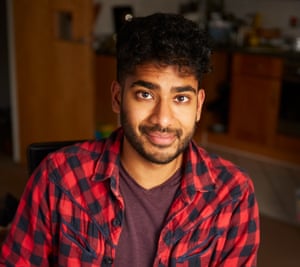If you have a sense of deja vu while watching Channel 4’s new series Confessions of a Junior Doctor, it might be because you saw BBC3’s Junior Doctors: Your Life in Their Hands, which chronicled the highs and lows of doctors embarking on the start of their careers. That series coincided with my first year working as a doctor and – despite working all hours in a hospital – I couldn’t help but be glued to every episode. At first glance, things do feel familiar: shaky footage of doctors running through corridors, and haunting piano music overlaid with poignant monologues about suffering and death. There’s a brief introduction which looks like a medical version of Harry Potter, complete with nervous first years and kindly consultant, Dr Philip Pearson, in the role of Dumbledore. “It will be hard work. It will be stressful. But there will be plenty of good times,” he intones, with twinkly-eyed enthusiasm.

But cut to footage of last year’s junior doctor strikes and it’s clear that the focus of this series will be more than the usual narrative of overcoming adversity. What brought a generation of doctors, the ones who should be the most bright-eyed and enthusiastic, to take such drastic action last year? Set not in a glitzy London teaching hospital, but in one of the many general hospitals that make up the backbone of the NHS, this is a series about the healthcare system’s struggles, seen through the eyes of its frontline staff.
Holly is the only true junior of the three doctors in this first episode. She funded her studies with a variety of jobs including stints as a healthcare assistant, a pub landlord and working in security; I wonder if she realises how useful the last two will be to her life as a doctor. We join her in the first few weeks of her fledgling career, where every prescription she writes comes bundled with the fear that she is going to kill someone. “I’ve heard that’s very difficult to do,” she tries to reassure herself. “Hopefully.”
Meanwhile, Emily’s dreams of becoming a palliative care specialist might seem a masochistic career choice. Why would you want to specialise in an area where every one of your patients will die? It is clear, though, that she understands how much of the practice of medicine doesn’t come from a textbook. If her patient dies suffering, the trauma it will cause the family will last the rest of their lives.
But it is Sam who has the most compelling story. One of his patients, Ryan, is a frequent visitor due to a undiagnosed illness that has caused him to be severely underweight. He is 29 but with his emaciated, four-stone frame he looks 15 years younger. What obscure disease will he turn out to have: a parasitic worm thought to have been eradicated 150 years ago? Radiation poisoning from the paperweight he bought at a car-boot sale? As this is real life, not an episode of House, the answer turns out to be as depressingly ordinary as it is heart-breaking. In a rare moment of quiet on the busy ward, Ryan takes Sam to one side and confides that he is terrified of going home because he knows he will start using cannabis again. It’s a potent appetite suppressant and he has been a heavy user for many years. Mystery solved: not some rare disease but a cycle of substance misuse and depression. What was needed to make the diagnosis was a doctor having the time to speak to his patient.

Time, or lack of it, is a recurring theme. It crops up when Emily stands her ground with her team, concerned that their hurried conversations are leaving the patients confused and resentful. When Holly informs her consultant that a patient has died, there is barely time for a heartbeat of recognition before the ward round continues. There are always more patients to see, more work to be done. “Emotion doesn’t come into it,” she says, like a soldier conscripted into a pointless war, despite her clearly empathetic nature. “If you’ve got the time to worry about how you feel then you’ve got more time on your hands than you thought.”
Sadly, today’s NHS seems predetermined to only allow staff to do a lacklustre job. Sam, it turns out, will be joining the one-third of junior doctors who have chosen to leave the NHS and not apply for further specialist training. “I want what anybody wants. I want to be able to do the job that I’m trained to do. I want to be respected,” he pauses, as it dawns on him that no job is worth his health. “I want to be happy.” Oh, Sam.
At the start of the programme, we are told that being a doctor requires courage, but if I were to choose a crucial skill that today’s doctors need it would be patience. Patience to work harder and longer hours for less pay. Patience to deal with a tabloid press obsessed with denigrating our every move. Patience to be ruled by a government whose only innovations are the myriad of ways they rebrand cuts. I worry, though, that our patience is running out.
Confessions of a Junior Doctor review – Bake Off"s Tamal Ray gives his verdict
Hiç yorum yok:
Yorum Gönder